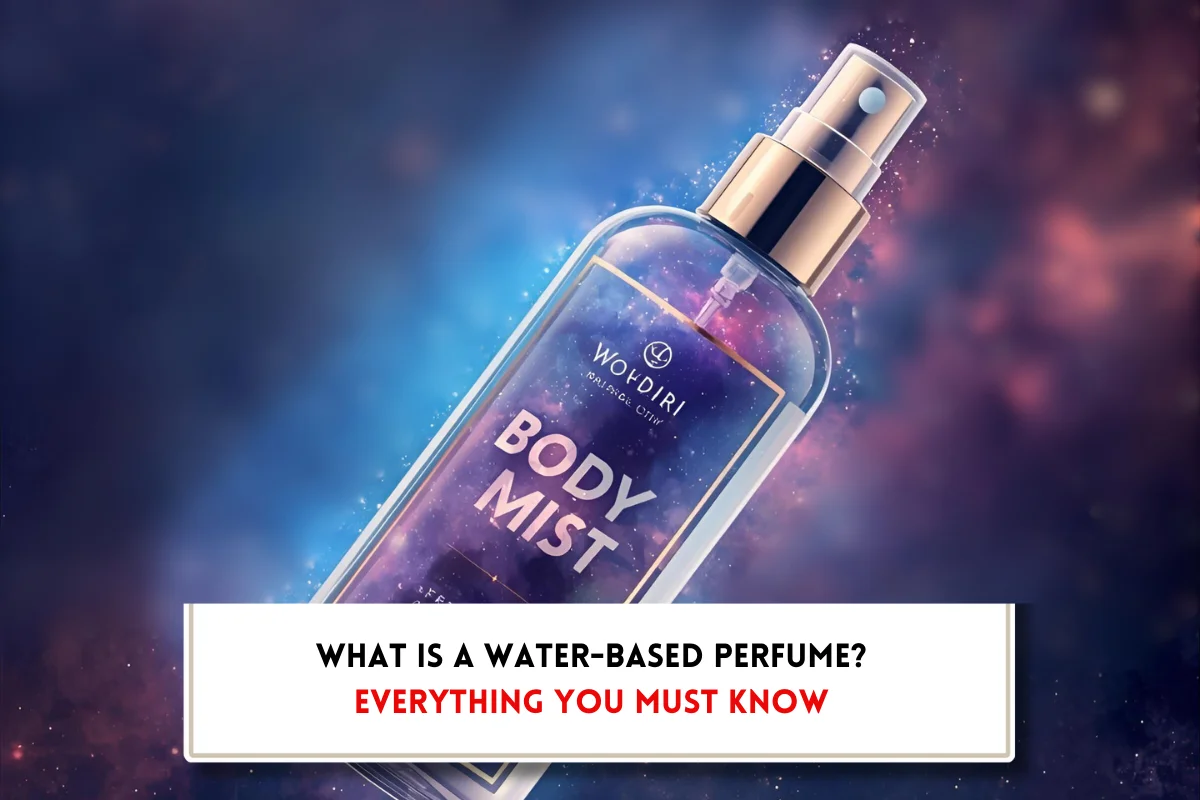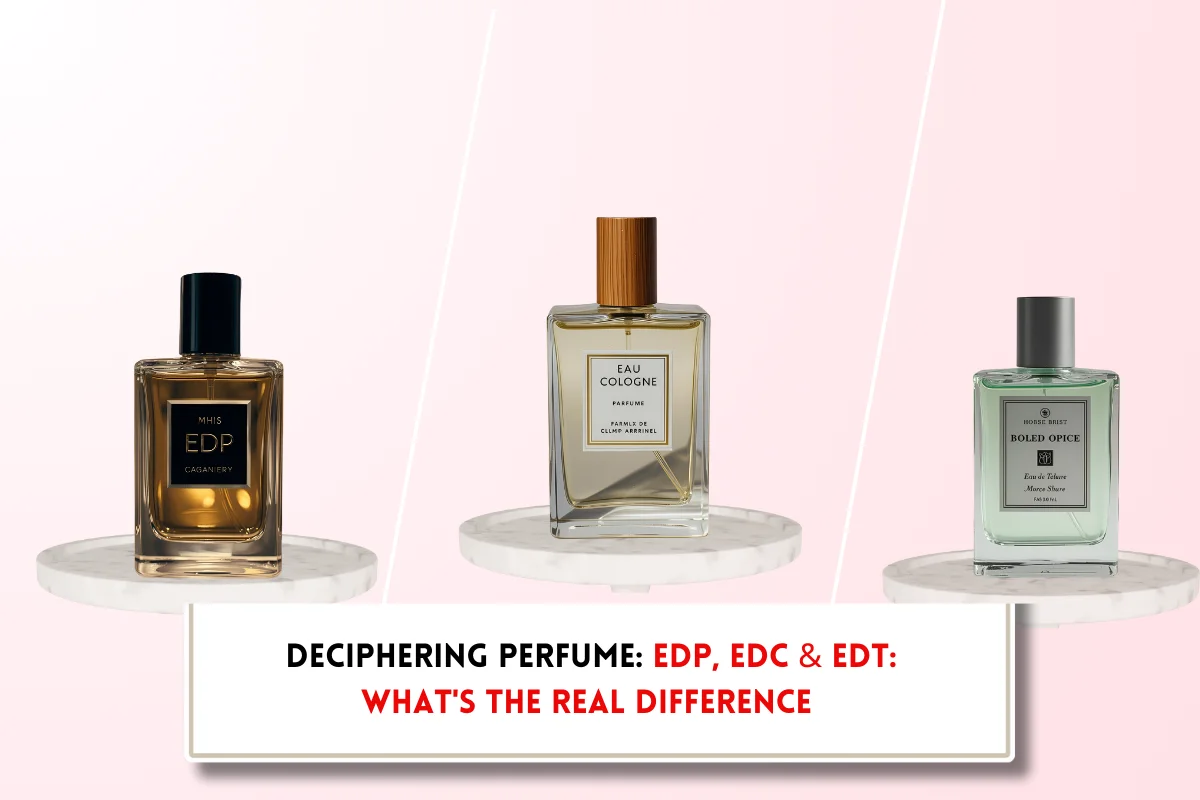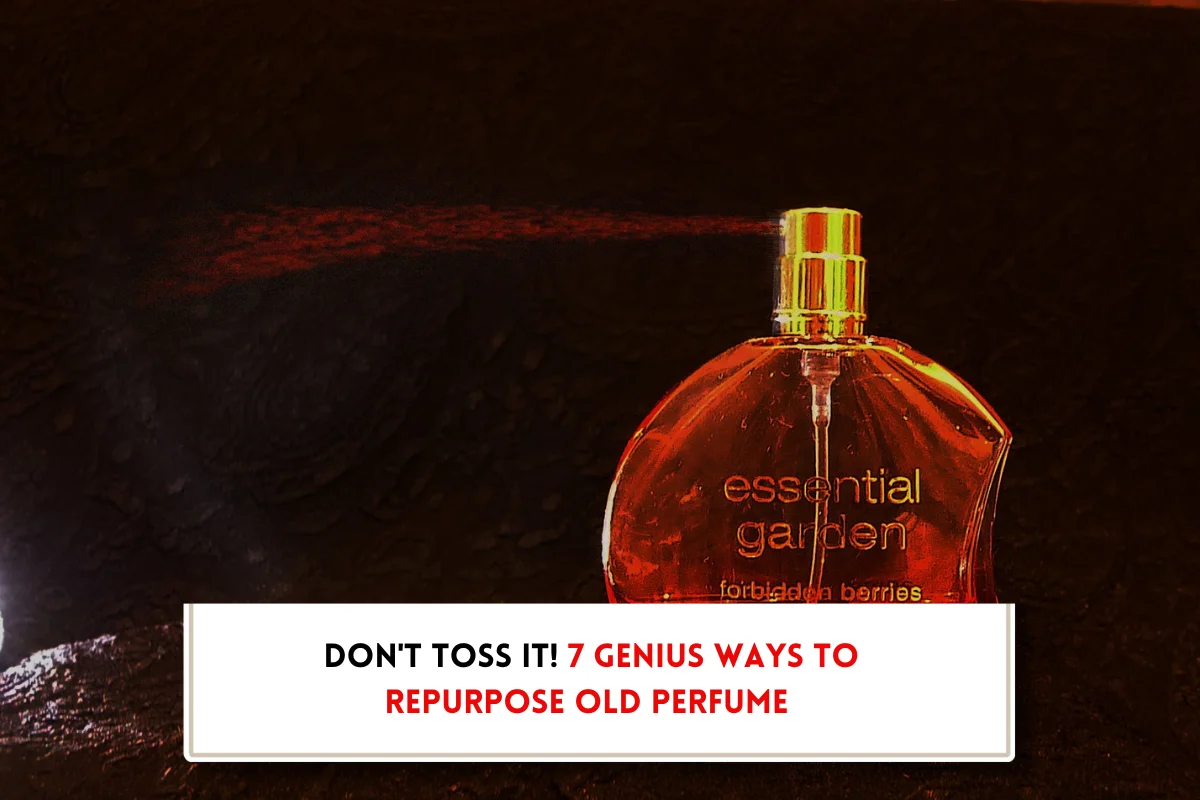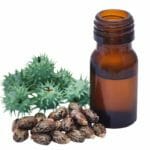What are parabens in shampoo?: Friend or foe!
At BeautyCaters, our expert team independently curates every recommended product. Purchases through our links may earn us a commission. Explore our transparent selection process.
We’ve all been there, staring at the word ‘paraben’ at the back of a shampoo bottle, wondering what exactly we’re lathering onto our locks.
So, what are parabens in shampoo? What do they do? Are they friend or foe for your hair health? Buckle up, because we’re about to unravel the science behind this common preservative.
- What Are Parabens?
- Why are parabens so popular?
- Common types of parabens
- Are parabens safe?
- Why are parabens harmful?
- How do parabens affect health and environment?
- How do we absorb parabens?
- What is the role of parabens in shampoos?
- How to identify parabens in shampoo?
- Does paraben cause hair loss?
- What are the healthy alternatives to paraben?
- How to find the right paraben-free alternative shampoo?
- What is paraben free shampoo?
- Why should we opt for paraben-free shampoos?
- Is paraben-free shampoo better?
- Final Word: What are parabens in shampoo?

What Are Parabens?
Parabens are a team of preservatives derived from something called para-hydroxybenzoic acid (PHBA). These chemical compounds serve a critical function – preservation. They act as antimicrobial agents that inhibit the growth of bacteria and mold. This, in turn, extends the shelf life of shampoos, or other product it is incorporated in, ensuring product efficacy and consumer safety.
Why are parabens so popular?
The widespread use of parabens in shampoos is not simply driven by happenstance. These preservatives boast a well-defined set of advantages that have cemented their position as a cornerstone ingredient within the cosmetic industry. Let’s know the factors behind their enduring popularity:
- Budget-friendly: Parabens represent a highly cost-effective solution for product preservation. Their affordability facilitates the creation of high-quality products without incurring excessive production costs. This translates to a broader spectrum of accessible options for consumers, ensuring value without compromising quality.
- Demonstrated antimicrobial efficacy: For decades, paraben’s effectiveness in preventing microbial contamination has been well-established. Their effectiveness in inhibiting the growth of bacteria and mold safeguards the continued efficacy and safety of shampoos throughout their designated shelf life. This not only protects consumers from potential product degradation but also upholds the intended functionality of the shampoo.
- Minimal sensory impact:: Unlike some ingredients that can alter a product’s sensory profile, parabens are both colorless and odorless. This allows for their seamless incorporation into shampoo formulations without affecting the product’s visual appeal or fragrance. Additionally, their compatibility with other commonly used ingredients minimizes the risk of unwanted interactions within the formula, ensuring a consistent and predictable product experience.
- Generally well-tolerated: Parabens are generally considered to have a mild profile, with a low propensity for causing irritation on most scalps. This is a critical factor for topical products like shampoos, which come into direct contact with the skin. However, it’s important to acknowledge that individual sensitivities can exist, and those with specific concerns should consult a dermatologist to determine the most suitable products for their needs.
- pH versatility: The effectiveness of parabens is not contingent upon a specific pH level. This adaptability makes them a versatile choice for a broad range of shampoos formulated to address various hair types and specific needs. This ensures that regardless of the shampoo’s unique composition, parabens can offer consistent preservation benefits, safeguarding the product’s integrity and performance.
Common types of parabens

Not all parabens are created equal. While they share the common goal of preserving your shampoo, there’s a whole team working behind the scenes, each with its own profile with prefixes such as “methyl-“, “ethyl-“, “propyl-“, “butyl-“, or “isobutyl-“, indicating their specific type. Here are the details of each form:
- Methylparaben: This is the most widely used paraben in the cosmetic industry. According to the Environmental Working Group (EWG), it falls under the “moderately hazardous” category (score of 3-4).
- Propylparaben: This paraben raises a red flag on the EWG scale, scoring a high 9, which signifies a “highly hazardous” profile. It’s also a potential endocrine disruptor and may cause allergies and developmental/reproductive issues (moderate concern).
- Ethylparaben: Similar to Methylparaben, EWG rates Ethylparaben as “moderately hazardous” with a score of 3. While concerns exist regarding allergies and immune system function, the bigger worry lies in its potential to disrupt hormone function.
- Butylparaben: This paraben tops the charts for potential risk, scoring the worst (9) on the EWG scale, landing it in the “extremely hazardous” category. In addition to disrupting hormones and potentially causing allergies, it raises concerns about developmental and reproductive issues. Some regulations may even restrict its use.
- Isobutylparaben: Similar to butylparaben, isobutylparaben possesses strong antimicrobial properties, making it a popular choice in hair care formulations.
Are parabens safe?
The safety of parabens is a complex issue with contrasting viewpoints. Regulatory bodies like the Cosmetic Ingredient Review (CIR) and the FDA have maintained that parabens are safe for use in cosmetics at permitted concentrations. The CIR even allows for a combined concentration of up to 25% in a single product. This stance is supported by extensive historical safety data.
However, a growing body of research has raised concerns about the potential health impacts of parabens, particularly regarding their ability to mimic estrogen in the body. Some studies suggest potential links to hormonal disruption, although conclusive evidence remains elusive, especially at the concentrations typically found in cosmetics.
This lack of definitive proof creates a situation where consumers are left to navigate a landscape of uncertainty. While regulatory bodies haven’t issued bans, the ongoing research and potential health risks are prompting some consumers to seek out paraben-free alternatives.
Ultimately, the decision of whether to use paraben-containing shampoos is a personal one. Considering your individual needs and comfort level with these ingredients can help you make an informed choice.
Why are parabens harmful?
While parabens offer undeniable benefits in shampoo preservation, growing research and consumer concerns have cast a spotlight on their potential drawbacks:
- Endocrine disruption: Parabens have been linked to mimicking estrogen in the body. This hormonal disruption has raised concerns about potential effects on reproductive health, development, and even some cancers. However, conclusive evidence at the concentrations typically used in cosmetics remains elusive.
- Skin irritation and breakouts: Some individuals experience skin irritation or breakouts from parabens. This may be due to their mild estrogenic properties potentially increasing oil production and clogging pores. Those with sensitive skin or existing skin conditions like eczema or dermatitis may be more susceptible.
- Environmental impact: Parabens have been detected in the tissues of marine life and may be harmful to aquatic ecosystems. Traces of these chemicals can reach waterways through wastewater, potentially impacting marine life and raising concerns about bioaccumulation.
- Allergic reactions: Though uncommon, allergic reactions to parabens can occur. Symptoms may include redness, itching, or swelling at the application site.
Related: Is baby shampoo good for adults?
How do parabens affect health and environment?
Parabens, a family of widely used preservatives in shampoos and cosmetics, have become a subject of debate. While lauded for their effectiveness in extending product shelf life and preventing microbial growth, concerns regarding their safety for human health and the environment have gained traction.
Health concerns of parabens:

- Cancer: Some studies suggest parabens may mimic estrogen and increase the abnormal growth of breast cells, potentially leading to cancer. However, conclusive evidence is lacking.
- Reproductive health: Parabens have been linked to reproductive issues in men and women. Studies suggest they may contribute to abnormal sperm and endometriosis.
- Skin issues: Parabens may cause irritation, dermatitis, eczema, acne breakouts, and allergic reactions, especially for those with sensitive skin.
- Pregnancy: The ACOG recommends avoiding parabens due to their potential endocrine disruption during pregnancy. Studies have detected parabens in both mothers and newborns.
- Endocrine disruption: Studies suggest parabens may mimic estrogen, a hormone crucial for various bodily functions. This raises concerns about potential disruption of hormonal balance, particularly regarding reproductive health and development. However, conclusive evidence for significant health risks at typical use concentrations remains elusive.
- Skin irritation and allergies: Parabens can cause skin irritation, dermatitis, eczema, and allergic reactions, especially in individuals with sensitive skin.
Environmental concerns of parabens:
- Marine life: Parabens disrupt the endocrine systems of aquatic organisms, impacting reproduction and development. They can bioaccumulate in fish and are toxic to some marine life.
- Ecological disruption: The presence of parabens in wastewater, soil, and aquatic organisms raises concerns about their potential bioaccumulation and long-term ecological impact. Parabens may disrupt the endocrine systems of marine life, potentially affecting reproduction and development.
How do we absorb parabens?
Parabens, those common preservatives in shampoos and cosmetics, can enter our bodies through several pathways. Here’s a breakdown of the most common routes:
- Dermal absorption: This is the primary route of exposure. When we apply lotions, moisturizers, shaving creams, or even shampoos and conditioners (though typically at lower concentrations), parabens can be absorbed through the skin.
- Ingestion: Parabens can also lurk in our food and beverages. They act as preservatives in various products, such as canned goods, baked goods, dairy items, soft drinks, and even energy drinks.
- Inhalation: While less common, inhalation is another potential exposure route. Tiny amounts of parabens can be released into the air during product use and linger in dust or airborne particles.
What is the role of parabens in shampoos?

Any informed consumer would naturally wonder, “What exactly is the role of parabens in shampoo?” Parabens are a group of chemicals commonly used as preservatives in personal care products, including shampoo. Their primary function is to prevent the growth of bacteria, fungi, and other potentially harmful microorganisms in the product. With incorporation of parabens into shampoo, manufacturers aim to extend the product’s shelf life and maintain its efficacy. However, the controversial aspect of parabens arises due to their potential health effects on human beings.
How to identify parabens in shampoo?
Ensuring that you are aware of the ingredients present in the personal care products you use is crucial, especially when it comes to potentially harmful substances like parabens. So, how can you identify parabens in shampoo ingredients?
Look out for ingredient names such as methylparaben, ethylparaben, propylparaben, butylparaben, isobutylparaben, or any other compound ending in “-paraben.” These names typically indicate the presence of parabens in the product.
Being able to spot parabens on shampoo labels empowers you to make informed decisions about the products you choose to include in your daily routine.
expand_moreedit
Does paraben cause hair loss?
While the exact link between parabens and hair loss isn’t definitively established, some studies suggest they might contribute. Parabens can irritate the scalp, potentially leading to inflammation and disrupting the healthy hair growth cycle. Additionally, parabens may mimic estrogen in the body, which could theoretically affect hair growth hormones.
Therefore, it’s best to err on the side of caution, especially if you have a sensitive scalp or concerns about hair loss. You can find many effective paraben-free shampoos that still cleanse and nourish your hair.
What are the healthy alternatives to paraben?
Consumer concerns regarding the potential health and environmental impacts of parabens have driven the demand for paraben-free shampoo alternatives. Fortunately, the hair care industry has responded with a diverse range of safe and effective preservative systems. Let’s explores some of the leading options currently available:
- Natural Preservatives: These are derived from plants, minerals, or other natural sources and offer a more eco-friendly alternative to parabens. Some examples include:
- Citric acid: This naturally occurring acid helps prevent the growth of bacteria and fungi.
- Benzyl alcohol: Derived from plants like jasmine or ylang-ylang, it acts as a broad-spectrum preservative.
- Rosemary oil: This essential oil possesses natural antimicrobial properties and a pleasant scent.
- Vitamin E: This antioxidant not only helps preserve the product but also offers some hair conditioning benefits.
- Alcohol-Based Preservatives: While some alcohols can be drying, certain types like:
- Cetearyl Alcohol and Stearyl Alcohol: These fatty alcohols function as thickeners and help stabilize the shampoo formula, also offering some mild preservative effects.
- Synthetic preservatives deemed safe: Some synthetic preservatives have undergone rigorous testing and are generally considered safe at approved concentrations. These include:
- Phenoxyethanol: This widely used preservative is effective against bacteria and mold.
How to find the right paraben-free alternative shampoo?
The best alternative for you depends on your individual preferences and priorities. Here are some additional factors to consider:
- Sensitivity: If you have sensitive skin, natural preservatives or alcohol-based alternatives might be gentler.
- Effectiveness: Look for shampoos that utilize a combination of preservatives for broad-spectrum protection against microbial growth.
- Transparency: Choose brands that clearly list their ingredients so you can make informed decisions.
What is paraben free shampoo?

Paraben-free shampoos are shampoos that eschew traditional preservatives, like natural extracts or rigorously tested synthetics to ensure product stability and microbial control.
A paraben-free shampoo is formulated without parabens. These shampoos leverage alternative preservation methods, such as naturally derived extracts or rigorously tested synthetic ingredients, to ensure product stability and combat microbial growth.
Related: 5 Best Ayurvedic Shampoo For Hair Growth
Why should we opt for paraben-free shampoos?
Parabens, while generally considered safe for short-term use according to regulatory bodies, have sparked consumer concerns due to several factors:
- Potential long-term health effects: Some research suggests parabens might mimic estrogen, a crucial hormone. This raises worries about potential hormonal disruptions linked to certain cancers and reproductive issues. However, conclusive evidence for significant health risks at typical use concentrations remains elusive.
- Environmental impact: Traces of parabens can be detected in wastewater and even aquatic life, raising concerns about their potential bioaccumulation and ecological consequences.
- Availability of alternatives: The growing availability of paraben-free shampoos formulated with natural preservatives or rigorously tested synthetic alternatives empowers consumers seeking to minimize paraben exposure.
- Precautionary principle: While definitive proof of harm might be lacking, some individuals choose to avoid parabens out of an abundance of caution, aiming to limit their exposure to potentially risky chemicals.
Is paraben-free shampoo better?
Whether paraben-free shampoo is better than your regular shampoo that contains it depends on individual needs and preferences.
However, here are some of the ways your paraben-free shampoo is be better than a regular shampoo:
- Preserves natural moisture: Paraben-free shampoos often rely on gentler cleansers that help remove dirt and buildup without stripping away the scalp’s natural oils. This can lead to healthier, more manageable hair.
- Harness nature’s power: Many paraben-free shampoos utilize plant extracts and essential oils. These natural ingredients not only offer a pleasant fragrance but can also possess antimicrobial properties, aiding in product preservation.
- Reduced build-up: Parabens can sometimes contribute to product build-up on the hair and scalp. Paraben-free alternatives may help minimize this build-up, leaving hair feeling lighter and more refreshed.
- Less health hazard: Switching to paraben-free hair care minimizes potential exposure to chemicals linked with some health concerns. This keeps your exposure to potentially risky ingredients to a minimum.
- Eco-conscious choice: Parabens are not readily biodegradable, raising concerns about their environmental impact. Choosing a paraben-free shampoo allows you to make a more environmentally friendly choice.
Final Word: What are parabens in shampoo?
The science on parabens in shampoos is still evolving. While regulatory bodies generally deem them safe at current usage levels, growing consumer concerns regarding potential health and environmental impacts have fueled a demand for paraben-free alternatives. The good news? The hair care industry has a wealth of paraben-free shampoos out there, using natural or tested synthetic preservatives. Weighing the science and considering your priorities empowers you to choose the perfect shampoo for your happy head!










